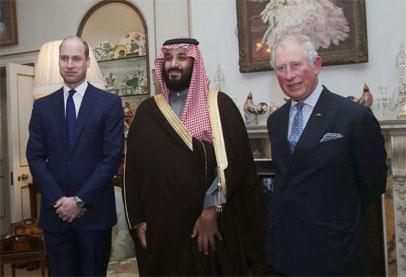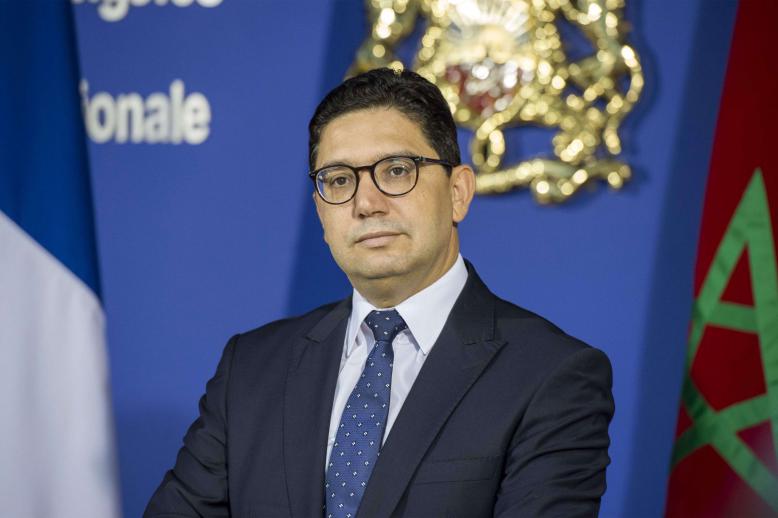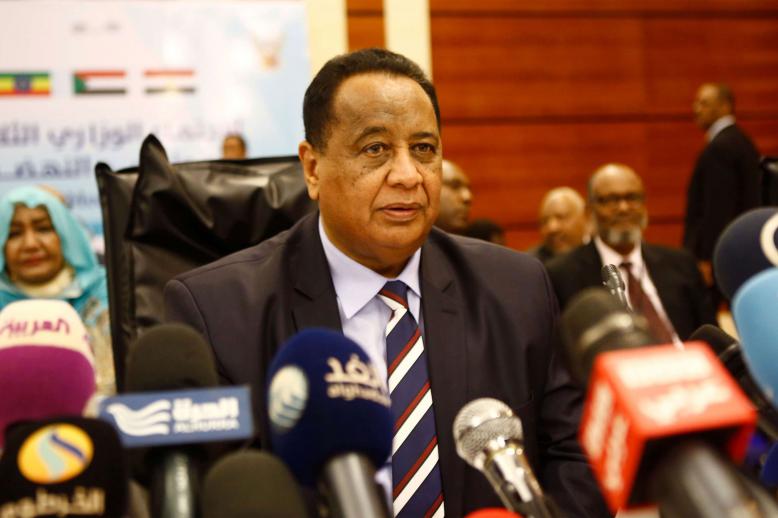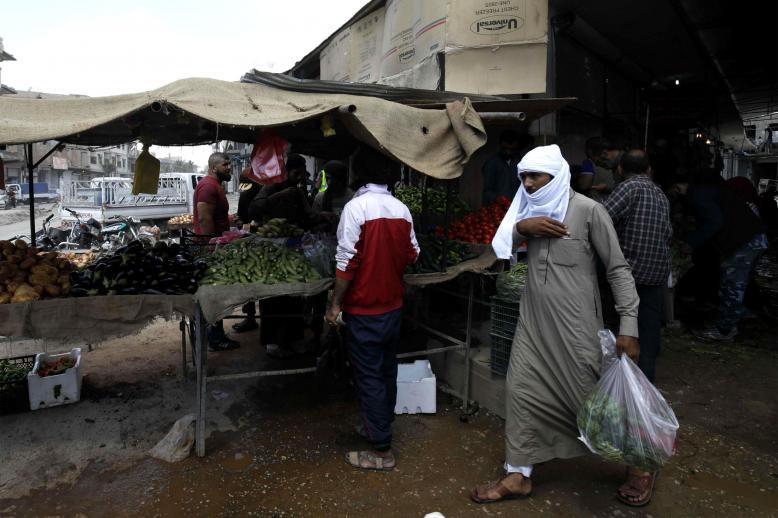UK rolls out red carpet for Saudi crown prince

LONDON - Britain's Queen Elizabeth II welcomed Saudi Crown Prince Mohammed bin Salman on Wednesday at the start of a controversial state visit where he faces questions over Riyadh's involvement in the Yemen war.
The crown prince lunched with the queen at Buckingham Palace ahead of talks with Prime Minister Theresa May, but his arrival drew protests on the streets of London over the brutal Yemen conflict.
May defended the invitation when she was grilled in parliament over why Prince Mohammed was being afforded the red carpet treatment during his three-day visit.
"The link with Saudi Arabia we have is historic, it is an important one and it has saved the lives of potentially hundreds of people in this country" due to anti-terrorism cooperation, she told MPs.
"Their involvement in Yemen came at the request of the legitimate government of the Yemen, it is backed by the UN Security Council and as such we support it."
The three-year conflict, which began with the Saudi-led intervention to fight Iran-backed Huthi rebels, has left 22.2 million people dependent on food aid, according to UN figures.
The Save the Children charity protested the visit by installing a statue of a child near parliament "to draw attention to the violence that is being fuelled, in part, by British-made bombs".
Around 200 demonstrators also lined up outside Downing Street, where the crown prince visited May.
"He's not welcome here and they shouldn't be rolling out the red carpet to people like him while people of Yemen suffer a brutal siege," said Mayer Wakefield, of the Stop the War Coalition which organised the protest.
- UK 'collusion' in war crimes -
Opposition Labour leader Jeremy Corbyn accused May's government of "colluding" in war crimes by selling arms to Saudi Arabia, and even suggested that British military advisers were "directing the war".
May responded that her relationship with Prince Mohammed had already helped alleviate the humanitarian crisis by convincing him to ease Saudi blockades of ports in Yemen during a meeting in December.
"This vindicates the engagement that we have with Saudi Arabia, to be able to sit down with them," she said.
The pair met at Downing Street for talks on reforms in Saudi Arabia, trade and investment relations and defence and security cooperation.
The crown prince noted there were now "huge opportunities" to boost trade ties post-Brexit.
"I have no doubt that it's a very deep relationship," he added. "And it's different and it's not only about politics, or military, or intelligence, but also socially and economically."
Following the talks, a Downing Street spokeswoman said May "welcomed recent reforms in Saudi Arabia, including on women" and had raised Britain's "deep concerns" at the humanitarian situation in Yemen.
"The prime minister and crown prince agreed on the importance of full and unfettered humanitarian and commercial access, including through the ports, and that a political solution was ultimately the only way to end the conflict and humanitarian suffering in Yemen."
The spokeswoman said the summit yielded "a landmark ambition" for around £65 billion (73 billion euros, $90 billion) of mutual trade and investment opportunities in coming years in areas ranging from education to defence.
She added this would include direct investment in Britain and "new Saudi public procurement with UK companies."
- Courting investors -
Later Wednesday Prince Mohammed was due to be hosted for dinner by heir-to-the-throne Prince Charles, with Prince William among the guests.
Earlier, junior foreign minister Alistair Burt responded to an emergency question in parliament about the visit by defending Britain's arms deals with Saudi, saying the regulations were "as strict as anywhere in the world".
He also praised the crown prince's reform measures, saying: "The engagement of women in business and government makes a real difference.
"In a Saudi context, these changes have immense significance."
The crown prince's trips to Egypt, Britain and later this month the United States are aimed partly at courting investors.
They follow a tumultuous period that saw a major military shake-up and a royal purge, part of a sweeping power play by the prince.




